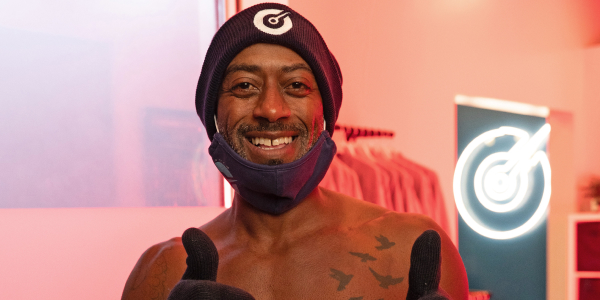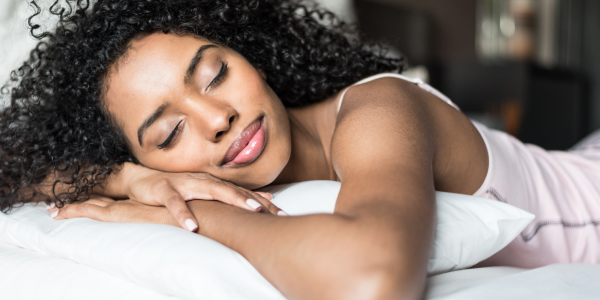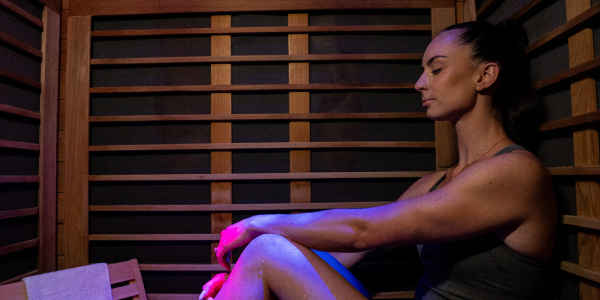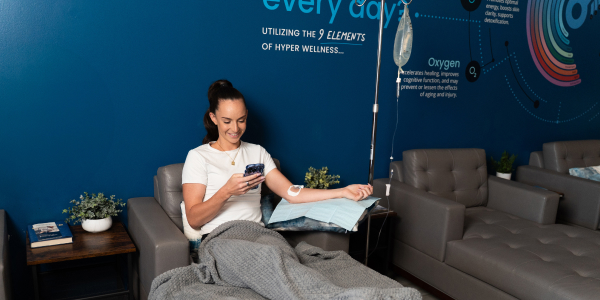Have you been experiencing a low mood more frequently? While factors like stress and underlying health conditions can affect mood, low serotonin levels can also be a hidden culprit.
Serotonin is a chemical produced by our brain and gastrointestinal tract.1 Depending on where it’s produced, it acts as a neurotransmitter or hormone, influencing key functions in the body like memory, stress management, digestive health, sexual energy, sleep health and body temperature.1
Years of research have linked low mood, depression and anxiety to serotonin depletion.2,10 It makes sense why: all the bodily responses it modulates relate to comfort and satiety. As our desired state is to be at ease, we all crave this soothing molecule.
Selective serotonin reuptake inhibitors (SSRIs), the first line of antidepressants prescribed for depression-related disorders, also work on increasing serotonin levels in the brain.3
Yet, many people are unaware of how to support serotonin production naturally in their bodies without medicines or major lifestyle changes. Regardless of whether you want to supplement the medicine you're taking or just looking to improve your mood, we all could use a little more serotonin in our lives. Luckily, making simple changes can go a long way.
TL,DR:
- Serotonin works as a hormone and neurotransmitter and is produced in the gut and brain. Its key functions are regulating mood, sleep, appetite, cognition and gut health.
- Exercise, sunlight and protein-rich foods naturally boost serotonin.
- Gut health is closely linked with mood. Eating well and including probiotics has a positive effect on serotonin levels.
- Cryotherapy, Red Light Therapy, IV Drips and Infrared Sauna can improve mood and support your natural wellness plan.
What Serotonin Does (and Doesn’t) Do
Serotonin or 5-hydroxytryptamine (5-HT), is referred to as the “feel-good” hormone. Yet, it plays a more complex role in a variety of other bodily functions.
You might be surprised to learn that most serotonin is not produced in the brain. About 90% of it is produced and stored in our gut in specialized cells called Enterochromaffin Cells (ECs).4
ECs can sense nutrients, gut bacteria byproducts, immune signals and medicine in the gut and respond by releasing serotonin.4 This regulates digestion, bowel movement and other immune activity.4 From the gut, serotonin is released into the bloodstream, where it carries messages from the central nervous system to other organs on how to function.
Here are some other key processes that serotonin influences:
- Sleep: Serotonin is a key ingredient in making melatonin, the hormone that regulates sleep cycles.7 It also plays a role in regulating circadian rhythms and REM cycles.7 A study in patients with Parkinson’s found that disruptions in neurotransmitters like serotonin were significantly involved in the prevalence of sleep disturbances.7
- Mood: Serotonin influences how we emotionally respond to events by helping moderate stress and anxiety. While depression and related mood disorders are complex and not caused by a single factor, low serotonin levels are associated with lower moods.10
- Sexual Desire: Serotonin and dopamine work as opposite forces in regulating libido.6 Dopamine leads to excitation, while serotonin suppresses it.5,6 In women, serotonin overactivity has been shown to inhibit sexual desire by suppressing dopaminergic and noradrenergic pathways.5
- Appetite Regulation and Weight Management: Serotonin helps the gut communicate with the brain when it is getting full, promoting a feeling of fullness and reducing food intake.9 Serotonin dysfunction is also linked to overeating and obesity.9
- Cognitive Functions: Serotonin supports cognitive abilities like memory consolidation, attention, planning and problem-solving.10 Serotonin depletion has been linked to dysfunctional episodic and working memory, poor verbal reasoning and other cognitive impairments.10
- Skin Healing: Serotonin regulates how skin cells respond during wound healing. It sends fibroblasts, the cells responsible for building new tissue and collagen, to the site of the wound.8 A study found that mice lacking the serotonin receptor 5-HT1A had larger wounds, slower wound healing and more inflammation.8
How the Body Makes Serotonin
Our bodies need a precursor called tryptophan to make serotonin.1 It’s an amino acid found in protein-rich sources of food like chicken, turkey and eggs.14 Once ingested, it is converted into serotonin through a series of chemical reactions. Here’s how it works:
- During digestion, the body breaks down proteins into amino acids, including tryptophan. It is absorbed in the lining of the small intestine. Then, specialized transport proteins carry it into the bloodstream.1
- Some of it crosses the blood-brain barrier, a difficult protective barrier, to reach the brain, while most is stored in the gut. Both these locations have enzymes that start serotonin synthesis locally.1
- First, the cells release an enzyme called tryptophan hydroxylase. It adds a small chemical group to tryptophan, forming the serotonin precursor 5-hydroxytryptophan (5-HTP).1
Two cofactors are essential for this chemical reaction. Magnesium keeps the enzyme in shape so it functions properly, while BH₄ (made from folate) participates directly in the chemical reaction, enabling the enzyme to attach the hydroxyl group to tryptophan.15
- The second enzyme, aromatic L-amino acid decarboxylase, removes a chemical group from 5-HTP to form serotonin (5-HT). Vitamin B6 positions the molecules so they can complete the chemical change efficiently.15
Natural Ways to Boost Serotonin
There are plenty of evidence-backed ways to promote serotonin production naturally. Try these at home:
1. Work Out
Get moving to make serotonin quicker. Tryptophan, the amino acid used to make serotonin, is released when you work out.11, 14 A study found that four weeks of consistent physical exercise increased tryptophan levels in the sweat.
This is why exercise is recommended for depression, a disorder associated closely with serotonin depletion.12 A meta-analysis of multiple controlled trials found that exercise is an effective treatment for depression. Intense yoga, strength training, walking and jogging were most effective.12
Plus, working out also pumps up endorphin levels, another natural mood booster. That’s why there are neurochemical reasons to exercise to relieve stress.
Not sure how to recover after an intense workout? Cryotherapy, Infrared Sauna and Red Light Therapy can complement your exercise routine well. They all improve mood while lowering pain and inflammation, providing the ultimate athletic recovery.
2. Get Bright Light
Getting bright light, especially right when you wake up, is a great way to stimulate serotonin production.13 We used to receive more light as an agricultural society decades ago, so it’s part of our natural design. This is why sunbathing and spending time outdoors make people feel refreshed.
Feeling low? Try going for a morning walk and notice how your mood feels afterward.
3. Move Your Body and Stretch
If lifting weights is not for you, try other forms of movement that feel good. Aerobic exercises like dance, swimming, cycling, or hiking can also positively affect serotonin levels. 12
Simply embracing movement can help improve mood and reduce stress. Stretching is relaxing, and many people report feeling better after stretching, but scientific studies showing its effects on serotonin production are inconclusive.
4. Practice Gratitude
When we cultivate positive emotions, such as gratitude and positive self-regard, we are nurturing our emotional health. On a biological level, the brain releases serotonin when we take time to remember good things in life or write them down.
Receiving gratitude also activates serotonergic pathways. Witnessing gratitude is almost just as good. Try watching videos online of people appreciating one another for a serotonin hit. Positivity has health-span elongating side effects.
5. Cherish Physical Touch
Physical contact evokes serotonin. Whether you cuddle, hold hands or hug, all help serotonin circulate. Pick a form of physical touch that makes you feel good. Cuddling with your pet also counts.
Nutrition for Serotonin: What Actually Helps
Tryptophan‑Rich Foods
As discussed earlier, tryptophan is necessary for serotonin production. One of the easiest ways to get more of it is to eat protein-rich foods like nuts, chicken, turkey and eggs.
Tryptophan supplements may also help. Studies suggest that they have a positive effect on serotonin production and improve attention and memory.10
Consume More Cofactors: B Vitamins, Magnesium & Antioxidants
The brain needs the proper nutrients to make serotonin efficiently. The most important of these are Magnesium and B-Complex vitamins.15
B6, B12, and folate work together to form BH4, the cofactor that activates enzymes in cells for the production of serotonin from tryptophan. Magnesium supports this enzyme activity and is involved in many other biochemical reactions.15
Eating foods rich in Magnesium and B-Complex vitamins can help.
The Gut–Brain Angle
Your gut and brain are constantly communicating. This link is known as the gut–brain axis.4 The gut microbiota plays a vital role in this. Changes in its composition have been shown to affect mood and influence brain states.4
Research suggests that consuming probiotics to improve gut microbiota may affect both digestive health and mood. Consuming probiotics is associated with increased gut serotonin levels.4
Restore Hyper Wellness Modalities That May Support Serotonin
Many therapies can accelerate serotonin production along with nutrition and exercise, while offering additional health benefits. Here are some we recommend for improved moods:
Cryotherapy
Cryotherapy, the therapeutic use of cold, is shown to elevate serotonin levels. In one study, people with lumbar osteoarthritis experienced improved symptoms and functioning after WBC (Whole Body Cryotherapy) and kinesiotherapy (strength and endurance-building activities). The participants also experienced increased serotonin levels after cryotherapy when combined with kinesiotherapy.
Try Cryotherapy to optimize the work you are already doing with exercise, light, physical touch and emotional regulation. Naturally biohack your way to a better day and book a Cryotherapy session at Restore.
IV Drip Therapy & IM Shots
While supplementation can help, receiving nutrients via an IV Drip offers 100% absorption. Our IV Drip Therapy allows you to choose which nutrients you would like to receive, so you can receive a dose of B-Complex vitamins and Magnesium in one sitting.
Don't have 60-90 minutes for an IV Drip? IM Shots deliver a whole range of nutrients in just 5 minutes.
Regardless of the Therapy you choose, a Nurse Practitioner can advise you on other nutrients that may affect mood positively.
Red Light Therapy
Clinicians have prescribed Red Light Therapy as a treatment for Seasonal Affective Disorder (SAD) and depression for years.1 One study found that it significantly reduced depression scores.
In the winter months or during busy times when you can’t get enough sunlight, Restore’s Red Light Therapy can help with adequate light exposure.
Infrared Sauna
Infrared Sauna raises your body temperature and mimics the feeling of a moderate cardiovascular workout. Increased sweating also detoxifies the body, improving metabolism. Many clients report feeling more relaxed and sleeping better after using these modalities.
Consider adding it to your Wellness Plan for a range of emotional and physical benefits.
Safe, Actionable 2‑Week Starter Plan
Now you have all the information you need about how serotonin is produced. How can you put it into practice easily? Try following this plan for two weeks and see how you feel:
Things to Do Daily
- Spend 20–30 minutes in the morning, soaking up the sunlight. On cloudy days, bright artificial lamps can do the trick. Incorporating a 10–15 minute brisk walk with some strength training can be a great start too.
- Including protein-rich foods in every meal is a good dietary practice in general. This will also offer adequate tryptophan for serotonin production. Pair these with food sources rich in B-Complex vitamins and Magnesium at least once a day.
- Practice gratitude and be intentional with positive emotions. Journaling can be a great medium here. Pair this with relaxation exercises like deep breathing, massages or yoga as needed.
Things to do weekly
- The WHO recommends at least 150 minutes of physical activity per week. Incorporate two to three sessions of 45 minutes to an hour of moderate exercise each week to reap the benefits.
- Social interactions are great stress relievers. Plan to spend some time with people whose company you enjoy each week.
Supporting serotonin production naturally is one of the most rewarding wellness habits you can build. It is easy to do too. Eating well, getting sun exposure and exercising regularly naturally boost serotonin levels.
When you recognize that your mood is low and you need an additional boost of feel-good hormones, Red Light Therapy, IV Drip Therapy, Infrared Sauna and Cryotherapy can help. They can be especially helpful in the winter months when seasonal affective disorder can strike due to reduced sunlight.
FAQ’s
1. What does a lack of serotonin feel like?
Low serotonin levels come with a persistent low mood, anxiety and loss of motivation. You may also notice sleep problems or digestive issues, including nausea. Some people also report increased cravings for comfort foods.
2. How to increase serotonin levels in kids?
Children may not be eligible for additional therapies, so home-based practices that you follow for yourself can be used with kids. Playing in the sun and eating protein-rich food can lift the entire family’s mood.






